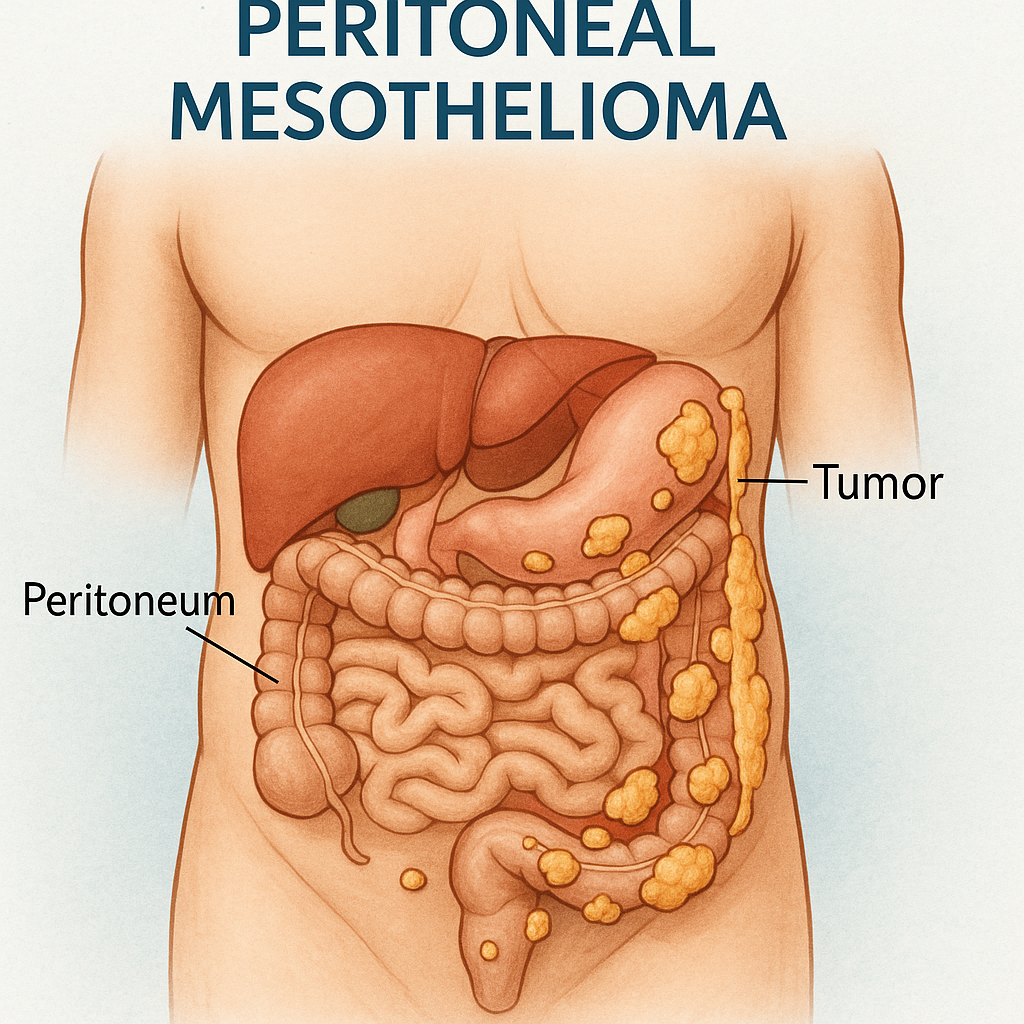Peritoneal Mesothelioma is a rare, aggressive subtype of malignant mesothelioma that originates in the peritoneum—the thin layer of tissue lining the abdominal cavity. It accounts for approximately 10–20% of all mesothelioma cases and is primarily caused by the ingestion or inhalation of asbestos fibers, which migrate and lodge in the peritoneal lining. Characterized by uncontrolled mesothelial cell proliferation, it often presents with symptoms like abdominal pain, swelling, ascites, weight loss, and digestive disturbances.
This form of cancer is distinct from pleural mesothelioma and typically requires multimodal treatment, including cytoreductive surgery, HIPEC (Heated Intraperitoneal Chemotherapy), systemic chemotherapy, and emerging targeted and immunotherapies.
Peritoneal mesothelioma prognosis has improved significantly with specialized treatment centers, and early diagnosis is critical for extended survival. It remains a signature disease of occupational asbestos exposure and is recognized in medical-legal, environmental health, and occupational disease frameworks.
